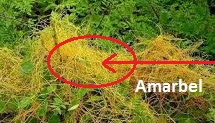Heterotrophic Nutrition
Heterotrophic Nutrition: Overview
In this topic, we will study the type of nutrition in which the species depend upon others for their food. It mentions that the animals depend on others for their food with the pictorial representations.
Important Questions on Heterotrophic Nutrition
The A, B and C are three living organisms. The organism A is a unicellular fungus which can live without air. It is used in the commercial production of an organic compound P from molasses. The organism B is a unicellular animal which lives in water and feeds and moves by using pseudopodia. It breathes through an organelle Q. The organism C is a tiny animal which acts as a carrier of the malarial parasite. It breathes and respires through a kind of tiny holes R and air-tubes S in its body.
What is organism B and organelle Q?
Match the organisms given in column I with the processes given in column II.
| Column I | Column II |
| (i) Leech | (a) Holozoic nutrition |
| (ii) Amoeba | (b) Autotrophic nutrition |
| (iii) Mushroom | (c) Parasitic nutrition |
| (iv) Green plant | (d) Saprophytic nutrition |
Saprophytic plants have haustorial roots.
Write a short note on haustoria.
In which of the following haustorial root is present?
Define mixotrophic mode of nutrition.
Which of the following unicellular organism/s shows a parasitic mode of nutrition?
Euglena lives in the expense of its host.
Give a few examples of animal parasites in your surroundings.
Plants like cuscuta follow the _____ nutritive strategy.
What type of soil an insectivorous plant grows in?
Which of the following component is a by-product of autotrophic nutrition?
A pitcher plant digests the trapped insects with the help of:
In lichens, the chlorophyll-containing partner is _____.
The pitcher plant traps and feeds on _____(leaves/insects).

What type of plant is Amarbel?
The people in the arctic use botfly as a source of protein.
Dermatobia hominis species of botfly parasitizes human species of botfly parasitizes humans.
State true or false. If the present parasite goes extinct then it may give way to the development of more nasty strains of parasites which will be dangerous for the ecosystem.
_____ is the name of the parasite species that got extinct with Huia of New Zealand.
